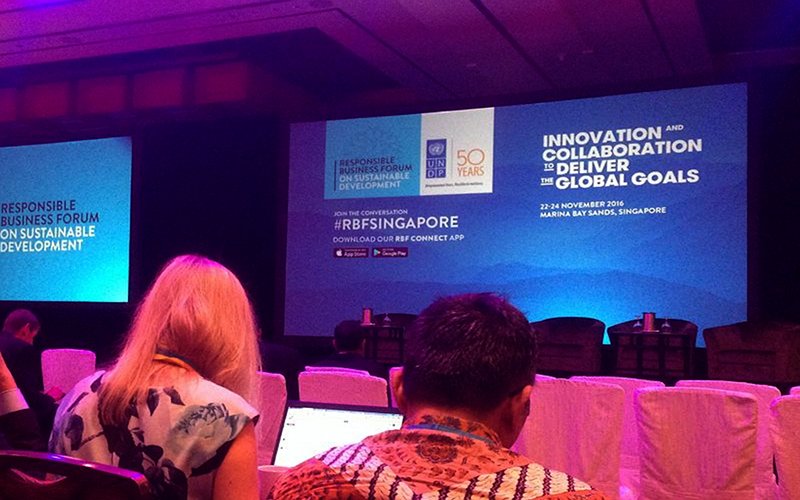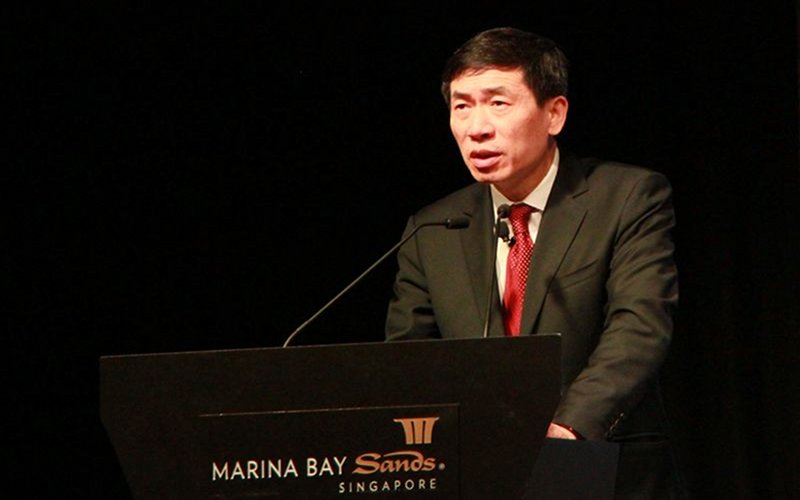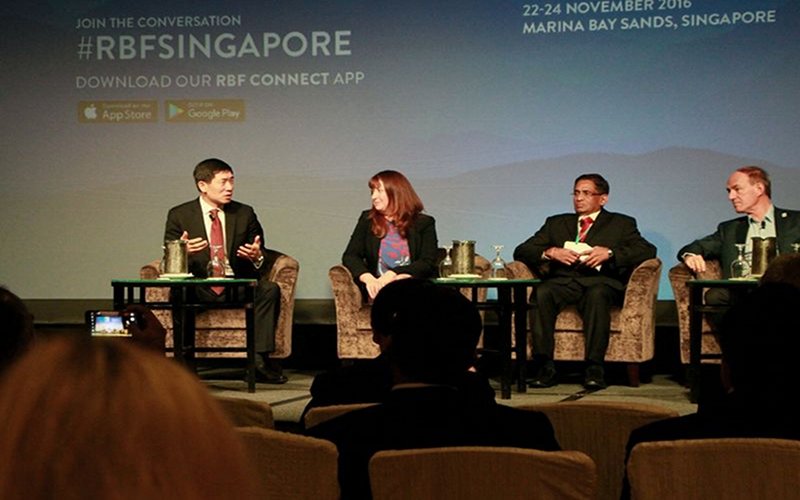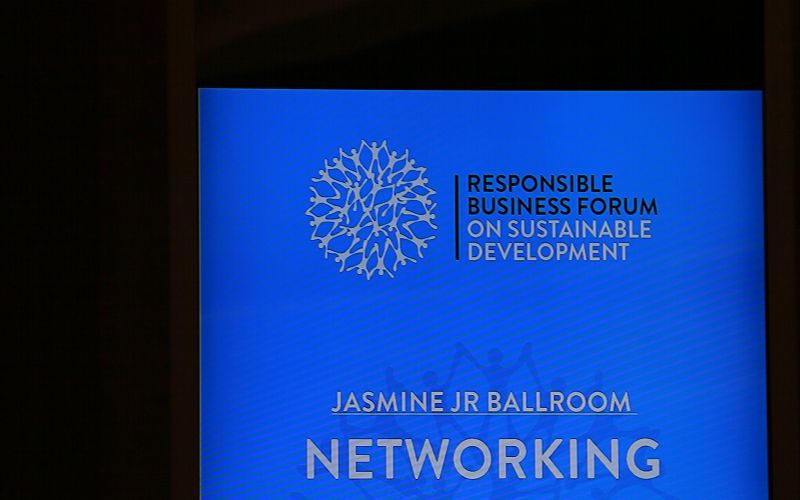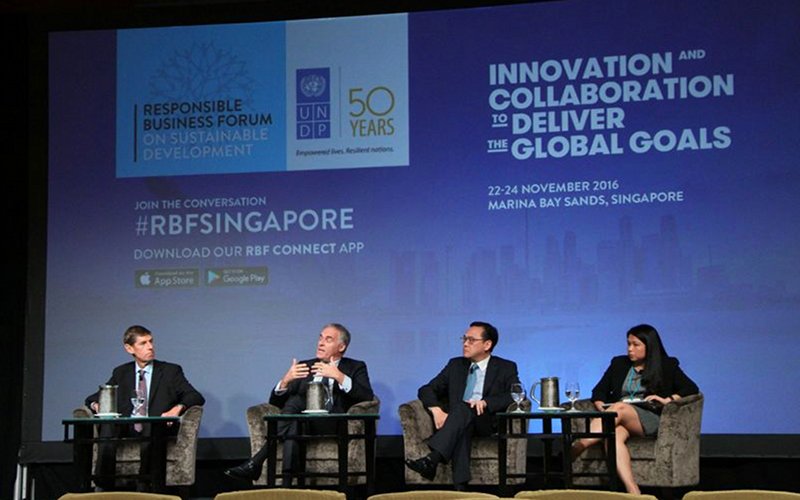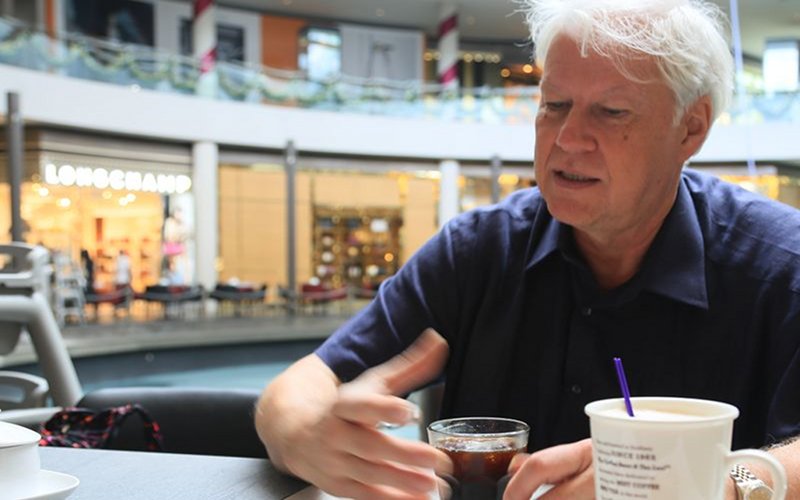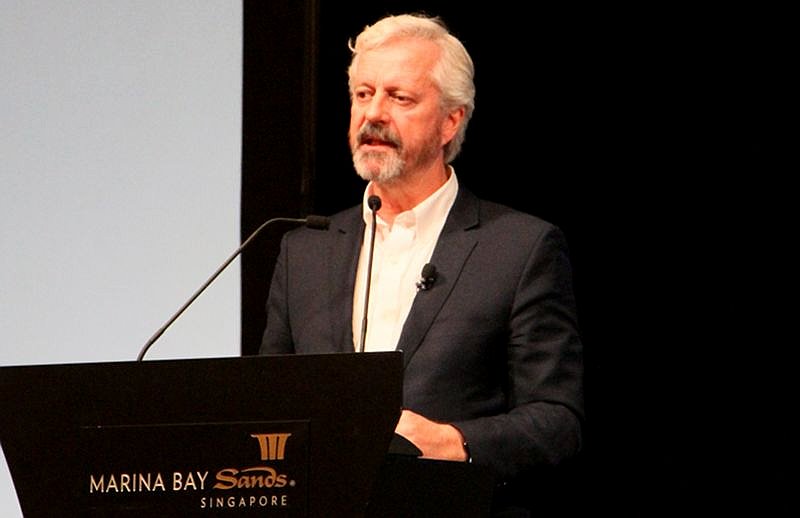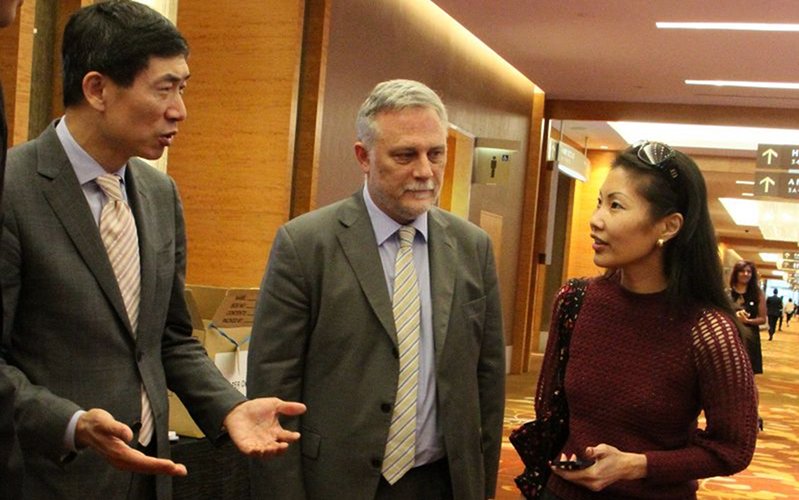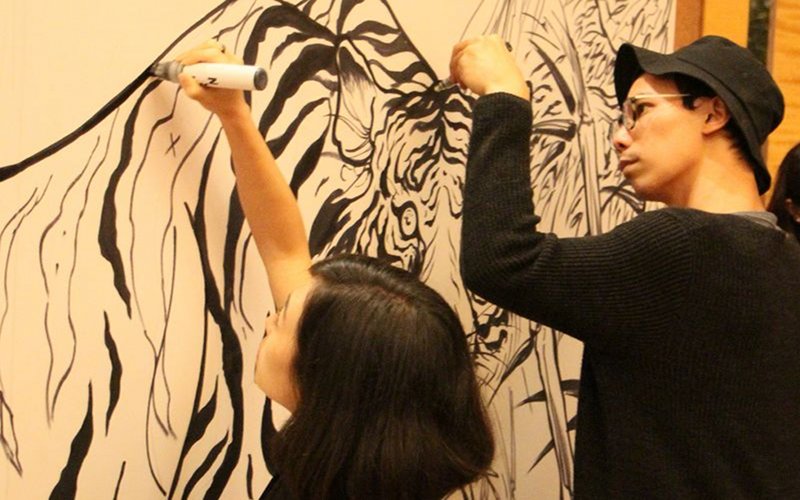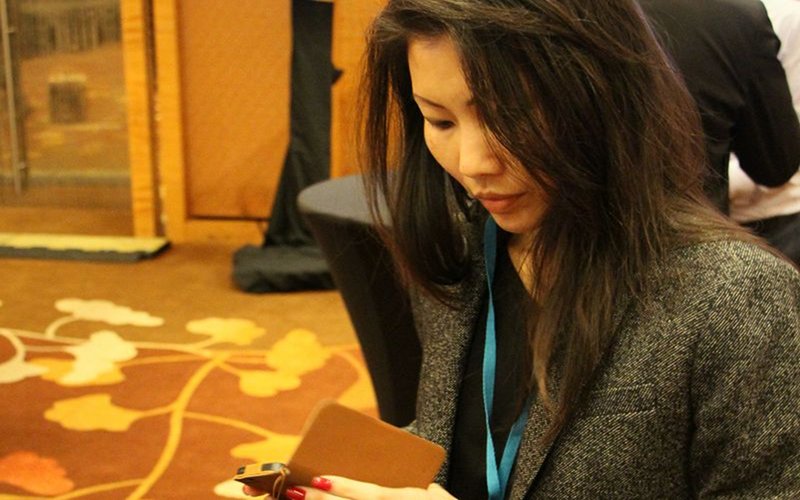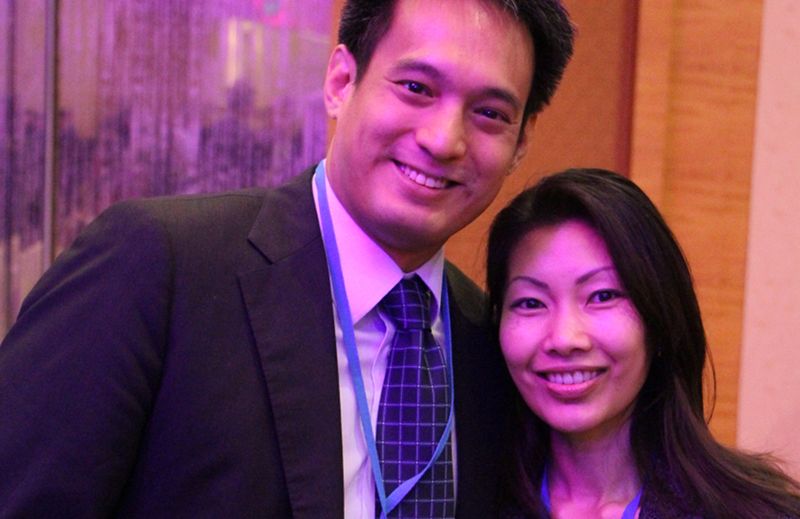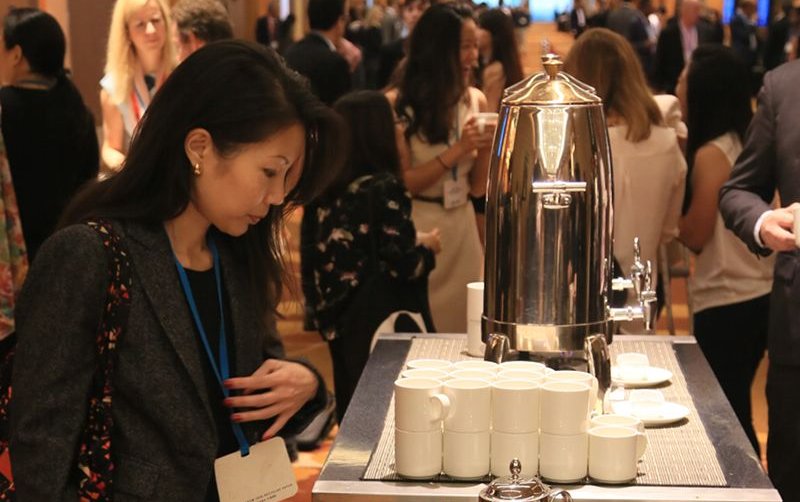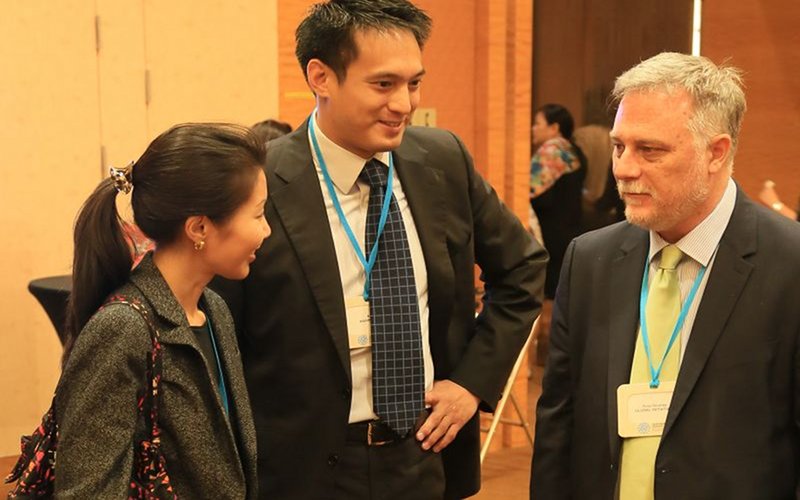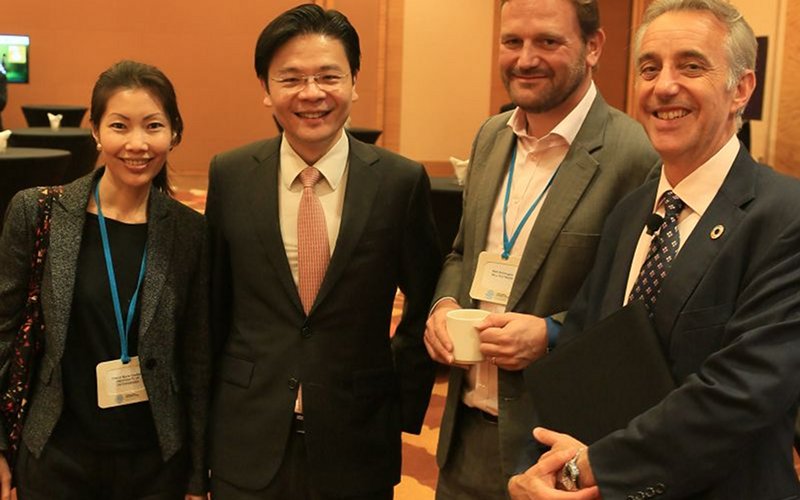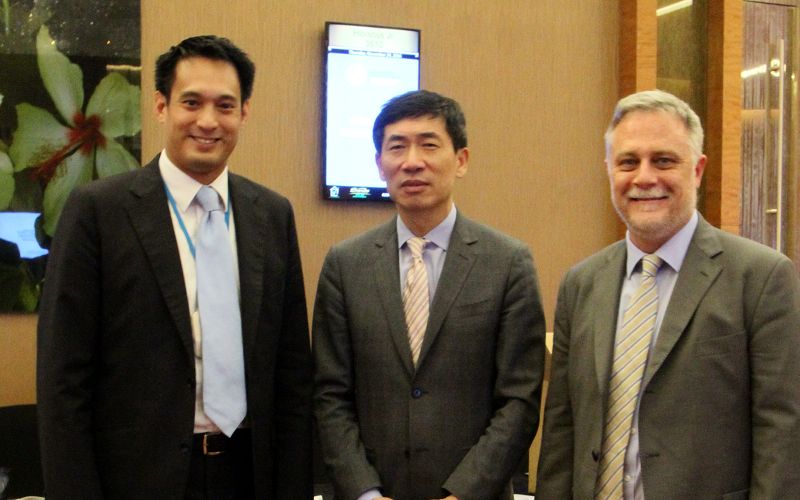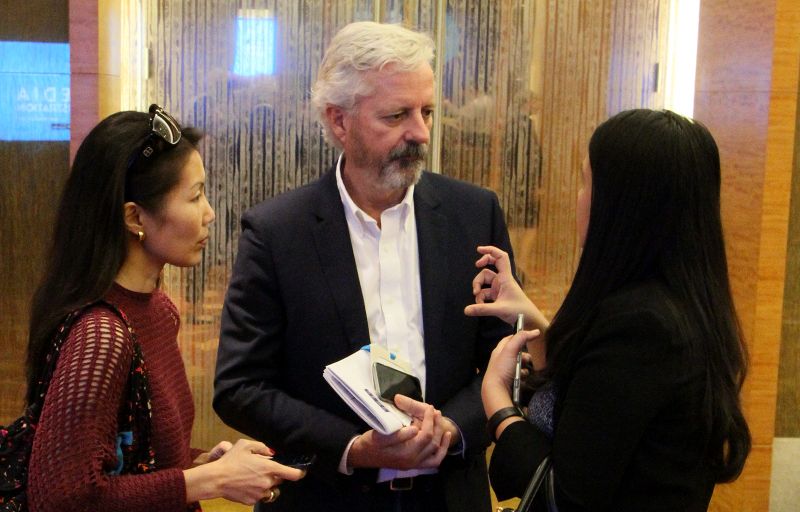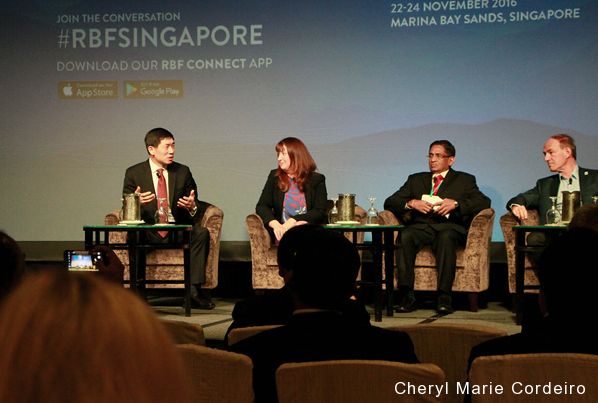Responsible Business Forum (RBF) 2016 at Marina Bay Sands Convention Centre, Singapore.
Text & Photo © JE Nilsson, CM Cordeiro, Sweden 2016
The 5th Responsible Business Forum (RBF) on Sustainable Development took place at the Marina Bay Sands Convention Centre in Singapore from 22– 24 November 2016. An event initiative by Global Initiatives, co-organised by the United Nations Development Programme (UNDP), the forum pulled together more than 700 participants, over 100 speakers, with the ambition to address 17 UN Sustainable Development Goals (SDGs).
Haoliang Xu, Assistant Secretary General, UN and Director, Regional Bureau for Asia and the Pacific, UNDP speaking at the Responsible Business Forum on Sustainable Development 2016 opening discussion panel. The topic was on collaboration and innovation to deliver global goals. The forum was held from 22 to 24 November 2016 at Marina Bay Sands (MBS) Convention Centre in Singapore. The panelists include (L-R), Erin Meezan, Chief Sustainability Officer, Interface, Sathasivam Subramaniam, Minister of Health, Malaysia and Marco Lambertini, Director General, WWF International. The session was chaired by Malcolm Preston, Global Sustainability Leader, PwC.
If there was a practical recurrent theme to the forum, it would be the highly complex nature of the concept of sustainability and sustainability goals, as exhibited by the 17 SDGs tracks with a total of 34 SDGs workshops in agenda for participants. Each track had for their session, panelists presenting case studies on each topic. The case studies presented provided for an interesting exchange of ideas during the brief Q&A (question and answer) session towards the session’s end. The main idea is to create a greater sense of awareness of how corporations and their businesses processes, with their multinational reach can actively shape global events, working together with economic institutions and governments in order to shape policies that will have a positive cascade of betterment in living conditions for the greater number of people.
From an academic perspective, the discourse and discussions that surrounded the various SDGs at RBF 2016 call to mind journal articles and debate within the academic circles with regards to complexity, sustainable development and sustainability goals, where the academic circles tend to have on a pair of less rose tinted glasses on the issue:
“The Rio +20 United Nations (UN) Conference on Sustainable Development held in June 2012 resulted in a 44-page, nonbinding “Declaration” that is generally considered a failed document. While not surprising given the recent trend of international environmental negotiations (Gardiner 2011), this inability to establish binding requirements toward global sustainability is, of course, disappointing. Its failure, however, provides an opportunity to collectively reexamine and, we argue, ultimately move past—the concept of sustainability [1].
The continued invocation of sustainability in international talks, development goals, and other policy discussions ignores the emerging realities of the Anthropocene (Biermann et al. 2012) unprecedented and irreversible rates of human-induced biodiversity loss (Wolinsky 2011; Sala et al. 2000), exponential increases in per-capita resource consumption (Myers 1997), and global climate change (Intergovernmental Panel on Climate Change [IPCC] 2007). Combined, these and other factors are increasing the likelihood of rapid, nonlinear, social and ecological regime changes (Barnosky et al. 2012). They create an urgent need to move past our current state of denial and acknowledge that we are heading into the “no-analog future” (Fox 2007). From a policy perspective, we must face the impossibility of even defining – let alone pursuing – a goal of “sustainability” in a world characterized by extreme complexity, radical uncertainty, and unprecedented change. The realities of current and emerging social ecological system (SES) dynamics warrant a new set of tools and approaches for governance (Griggs et al. 2013; Liu et al. 2007).” [2:777-778]
The authors Benson and Craig go on in their 2014 article, to give a plausible explanation as to the cause of the failed attempts to efficiently address sustainable development goals in terms of changed human behaviour:
“The concept of sustainability dates back to early UN conferences in the 1970s and has become increasingly difficult to disentangle from sustainable development, although the two concepts are not necessarily the same. In general, “sustainability” refers to the long-term ability to continue to engage in a particular activity, process, or use of natural resources… In contrast, “sustainable development” reflects a broader societal goal of how economic and social development should proceed – namely, with sufficient consideration of the environment and natural resources to assure the continuing availability of natural capital and other ecological amenities.” [2:778]
Taking collective human action for climate change as an example, the authors continue:
“The pursuit of sustainable development has occurred in an emerging climate change era. The pursuit of sustainable development goals, however, has not resulted in effective mitigation of climate change. Greenhouse gas emissions have continued to increase, and SESs must now adapt to climate change’s impacts. Resource consumption patterns have proceeded since 1992 on similar trends in terms of pace and scale. In anticipation of Rio +20, the UN Environment Programme (UNEP) released a report that Executive Director Achim Steiner summarized by stating, “If current patterns of production and consumption of natural resources prevail and cannot be reversed and ‘decoupled,’ then governments will preside over unprecedented levels of damage and degradation” (UNEP 2012b). The report emphasized the increasingly likely possibility of large-scale irreversible change, concluding that as human pressures on the Earth system accelerate, critical global, regional, and local thresholds are quickly being approached or, in some cases, have already been exceeded (UNEP 2012a).
Despite this alarming and unpredictable situation, policy discussions remain framed by the goal of sustainability. This adherence to sustainability ignores the fact that the concept has failed to meaningfully change the human behavior that created the Anthropocene. We are losing in the struggle to sustainably govern the commons (Dietz, Ostrom, and Stern 2003).” [2:778]
The alarming and unpredictable situation of today necessarily requires a more systems perspective approach to solving global challenges, yet most practicalities of business processes occur in paradox of being bolstered by yesteryear knowledge paradigms with Cartesian dualism as foundation. One such example encountered at RBF 2016 was the panel discussion that asked key industry influencers if they could see a new concept of corporate collaboration instead of the normative industry competition. The discussions indicated aspirations towards greater collaboration between corporations, labelled ‘innovative collaboration’, although as Benson and Craig had noted in their 2014 study findings, no clear shifts in corporate consciousness could be marked. And perhaps so, as Tainter and Taylor (2014:169) observed when studying the economics of complexity that extend beyond individual industry influencers:
“In any living system, increased complexity carries a metabolic cost. This is a matter of elementary thermodynamics: it takes energy to maintain structure, and complexity by definition involves increases in structure. In non-human species the cost is a straightforward matter of additional calories. Among humans the cost is calculated in such currencies as resources, effort, time or money, and by more subtle matters such as annoyance. These currencies are all transformations of energy (Tainter & Patzek, 2012, pp. 77–79). While humans find complexity appealing in spheres such as art, architecture and music, this is usually accompanied by a preference that someone else pays the cost. There is an adversity to complexity when it unalterably increases the cost of daily life without a clear benefit to the individual or household. Before the development of fossil fuels, increasing the complexity and costliness of a society meant that people worked harder. Energy provided by hydrocarbons has subsidized the costs of complexity in contemporary life, obscuring these costs.
The development of complexity is thus a paradox of human history. Over the past 12 000 years humanity has developed technologies, economies and social institutions that cost more labour, time, money, energy and annoyance, and that go against humanity’s aversion to such costs.”
As such, if the globe were to flourish in long term, the address and understanding of global complexity is an immediate network challenge pegged at multiple tiers of actors in society, beginning namely with each and every individual, then radiating outwards. Global equilibrium requires a systemic shift in consciousness towards an understanding of living as part of an ecological system in multilateralistic, mutualistic relations. Considering corporate consciousness, the role of economic institutions in today’s anthropocene is to as much as possible, counter the human tendencies towards bounded rationality and opportunism so as “to reconcile systemic functions and imperatives with human nature [where] reconciliation involves installing desirable social dilemmas while overcoming undesirable ones. The desirability of dilemmas in turn must depend, in the last analysis, on the contingent impact of specific systemic imperatives on the overarching goal of human flourishing.” [3:490]
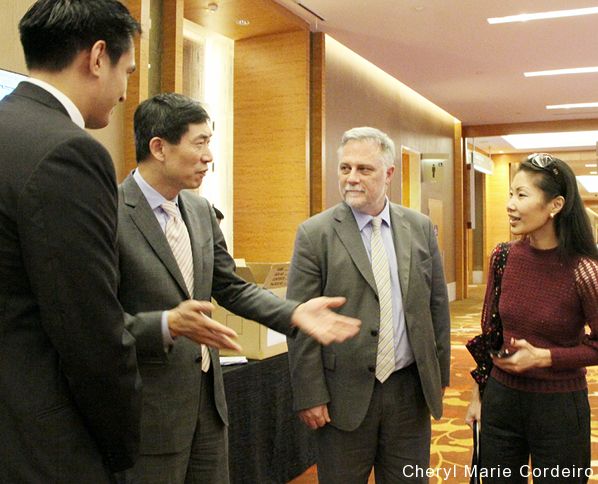
Responsible Business Forum (RBF) 2016, Marina Bay Sands, Singapore. L-R: Kevin Teng, Executive Director of Sustainability at Marina Bay Sands; Haoliang Xu, Assistant Secretary General, UN and Director, Regional Bureau for Asia and the Pacific, UNDP; Tony Gourlay, CEO, Global Initiatives; Cheryl Marie Cordeiro, Research Fellow, Centre for International Business Studies (CIBS), University of Gothenburg, Sweden.
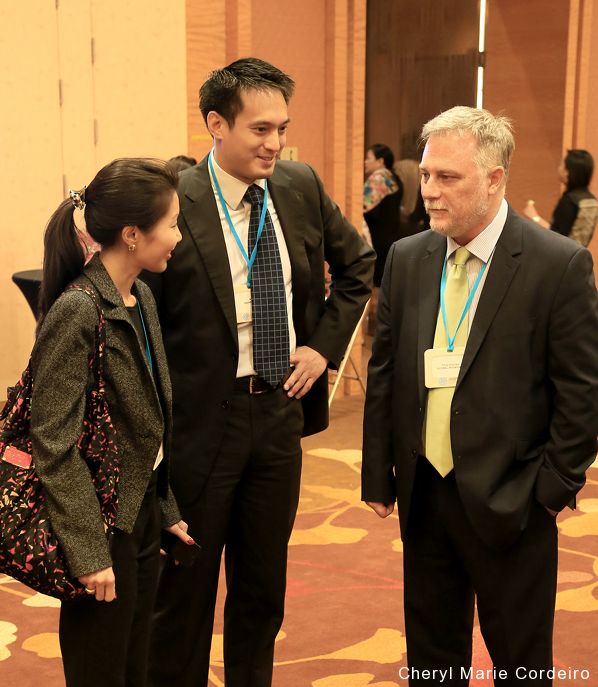
During a session coffee break, with Kevin Teng and Tony Gourlay.
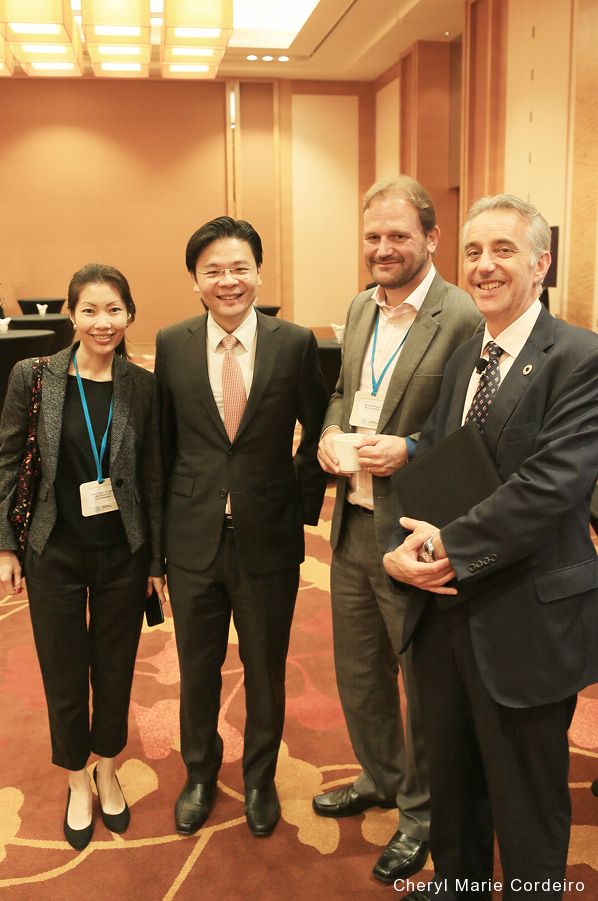
L-R: Cheryl Marie Cordeiro, Research Fellow, Centre for International Business Studies (CIBS), University of Gothenburg, Sweden; Lawrence Wong, Minister for National Development, Singapore; Mark Worthington, Managing Director, Bell Pottinger Singapore; Malcolm Preston, Global Sustainability Leader, PwC, at the Responsible Business Forum (RBF) 2016, Marina Bay Sands, Singapore.
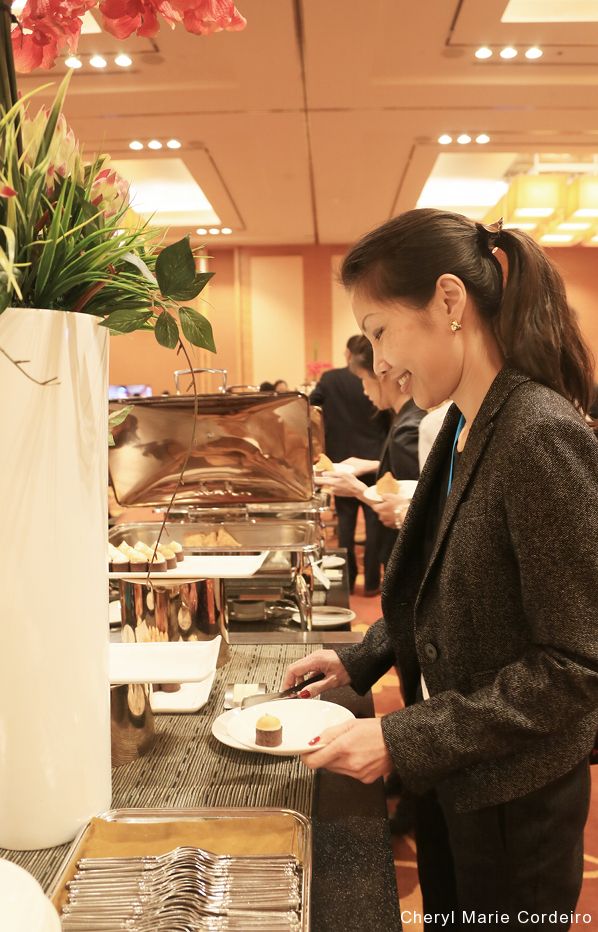
Working towards zero waste and responsible consumption, a notable culinary effort at RBF Singapore 2016 was a menu for the participants whose items were as little process packaged and as much locally sourced as possible. In 2014, Marina Bay Sands (MBS) procured 90% of products within Singapore, contributing to over SG$500 million in revenue for the local companies [4].
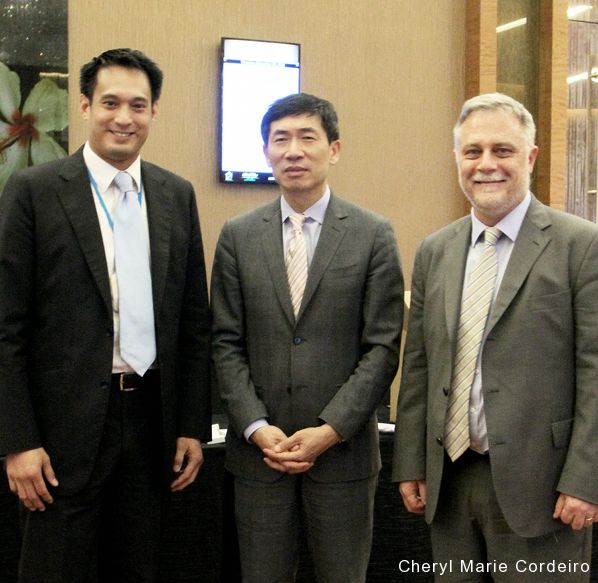
My heartfelt gratitude to Marina Bay Sands Singapore for the opportunity to participate in Responsible Business Forum 2016, Thank you!
Responsible Business Forum (RBF) 2016, Marina Bay Sands, Singapore. L-R: Kevin Teng, Executive Director of Sustainability at Marina Bay Sands; Haoliang Xu, Assistant Secretary General, UN and Director, Regional Bureau for Asia and the Pacific, UNDP; Tony Gourlay, CEO, Global Initiatives.
References
[1] Global Initiatives (2016). Responsible Business Forum on Sustainable Development, Event Report. Internet resource at http://bit.ly/2hC5hfE. Retrieved 16 Dec. 2016.
[2] Benson, M. H., & Craig, R. K. (2014). The end of sustainability. Society & Natural Resources, 27(7), 777-782. doi:10.1080/08941920.2014.901467
[3] Valentinov, V., & Chatalova, L. (2016). Institutional economics, social dilemmas, and the Complexity‐Sustainability Trade‐off (A response to hielscher and pies). Systems Research and Behavioral Science, 33(3), 488-491. doi:10.1002/sres.2397
[4] Marina Bay Sands 2014 Sustainability Highlights. Internet resource at http://bit.ly/2h1DUKy. Retrieved 20 Nov. 2016.
